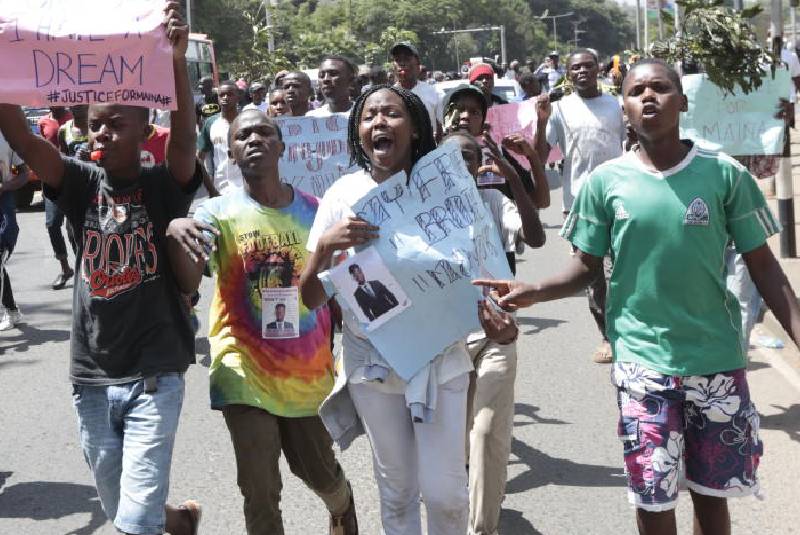×
The Standard e-Paper
Smart Minds Choose Us

Residents of Kibera demonstrate on Valley Road against the killing of Carilton Maina by the police in Kibera, Nairobi. [Photo, Beverlyne Musili]
Kilimani OCPD Michael Muchiri and his fellow police bosses fondled with their smart phones as the government they had come to represent got roasted.